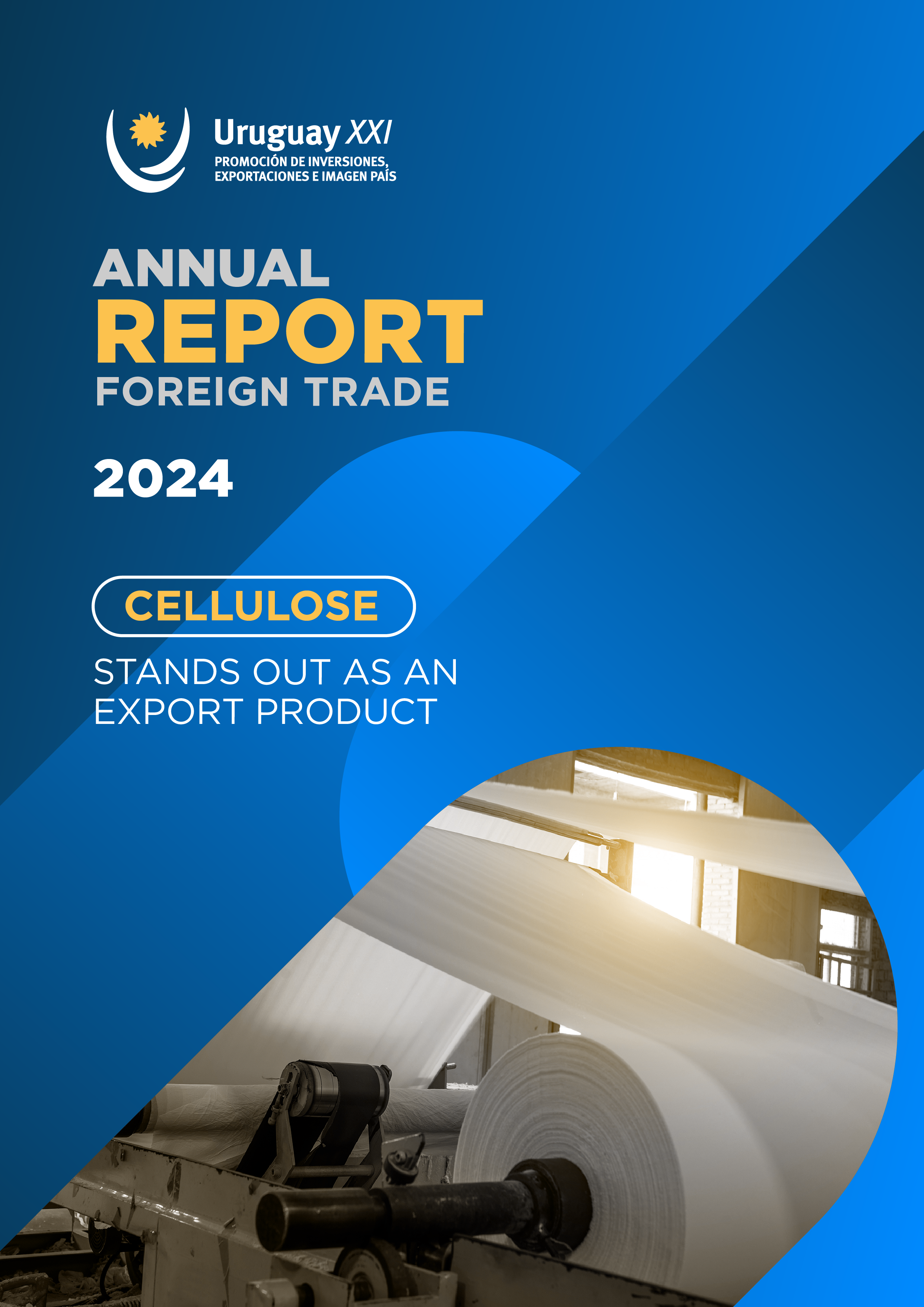- Home
- About us
- News
- Events
- EXPORT Export
-
BUY
Buy
Buy
- INVEST Invest
- COUNTRY BRAND Country Brand
-
INFORMATION CENTER
Information center
InformationCenterInformationCenterReports Country reports Department reports Foreign trade reports Product-Destination worksheet Sectors reports Work documentsStatistical information Classification Uruguay XXI Exports Imports Innovative National Effort Macroeconomic Monitor Tools Buyers Exporters Investors
- Contact
-
Languages

Reports
Foreign Trade Annual Report - 2024
Annual Report of 2024: Exports of goods and services, Imports of goods, External Context and Outlook, and International Integration.
Share:
- Uruguayan goods exports totaled US$ 12,845 million in 2024, which marked a 13% growth compared to 2023. This result is mainly due to the increase in cellulose exports and the recovery of soybean exports (which in 2023 suffered the impact of a drought).
- In 2024, a total of 1,311 companies exported goods and generated around 64,000 direct jobs in key sectors such as industry, agriculture, and livestock. These companies exported 789 tariff items at the four-digit level. In addition, Uruguayan goods reached 172 destinations.
- The main products exported in 2024 were cellulose, beef, soybeans, dairy products, and beverage concentrates. Soybeans and cellulose were the items with the highest positive impact, while canola and carinata, rice and malt had a negative impact on exports in 2024.
- The main destination of Uruguayan exports in 2024 was China, with 24% of the total, followed by Brazil, which had a share of 18% and, in third place, the European Union with 14% of total exports. The United States and Argentina accounted for 9% and 5%, respectively.
- Goods imports, excluding oil, byproducts, and energy, totaled US$ 10,875 million in 2024, and increased by 2.1% with respect to 2023. Consumer goods accounted for a large part of this performance.
- In 2024, Uruguay continued to consolidate its economic openness through international agreements and regional reforms. The Mercosur-European Union Association Agreement was signed after 25 years of negotiations, and progress was made with the United Arab Emirates and other countries. New markets were opened, including key products such as dairy products to El Salvador, bone-in beef to Israel, and tripe to China. In Mercosur, the new Regime of Origin and the Protocol on Public Procurement were implemented, along with Bolivia becoming a Member State.
Go Back
